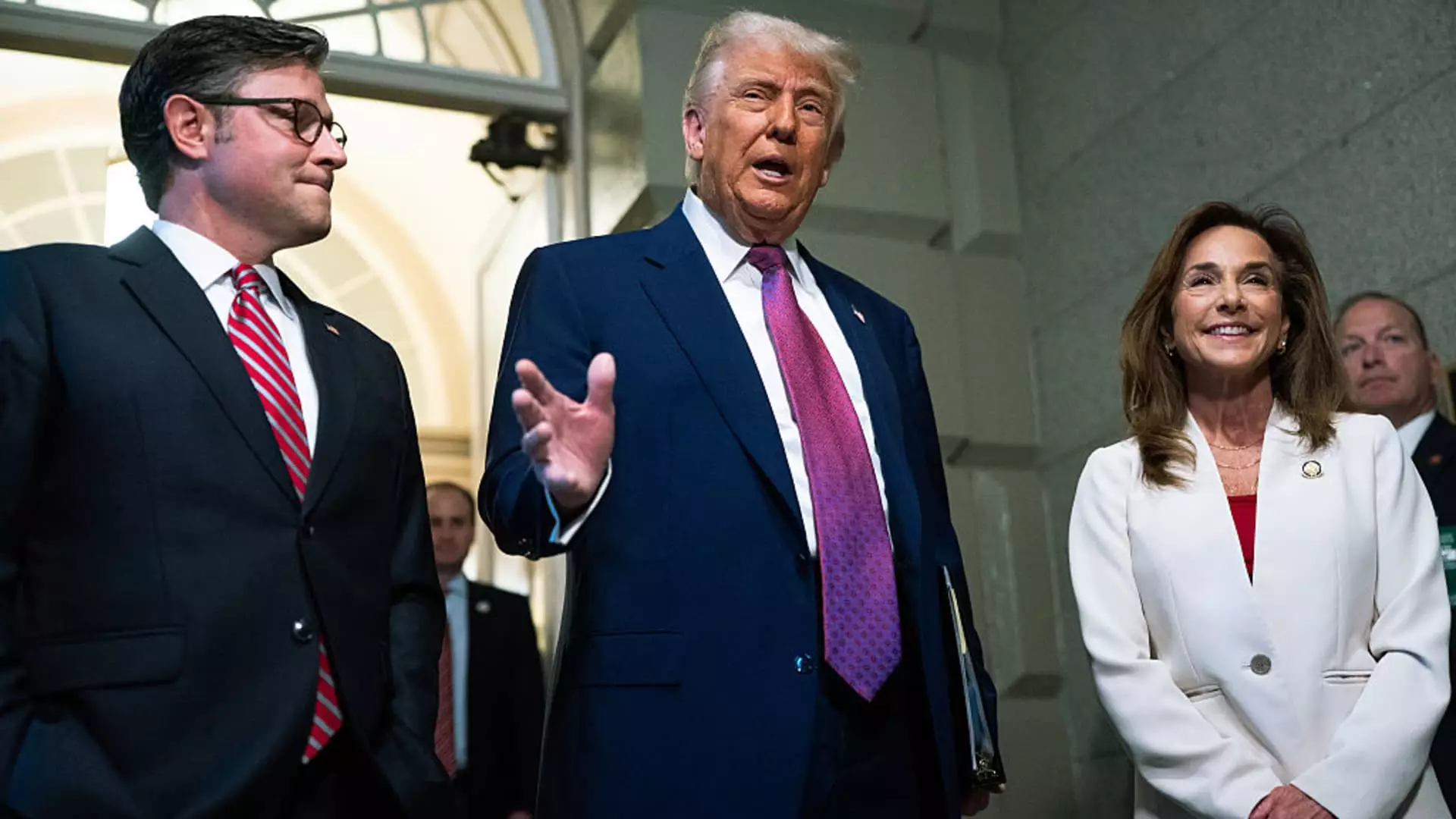In a tumultuous display of partisan alignment, the Republican majority in the U.S. House of Representatives narrowly passed President Donald Trump’s ambitious tax reform bill, touted as “big” and “beautiful.” However, this legislative maneuver isn’t the triumphant achievement it is made out to be. Instead, it raises serious questions about the priorities of the party and the adverse effects on the American populace. The vote, finalized at 215-214, reflects more of a streaming reality rather than a cherished accomplishment and lays bare a troubling trend toward deepening income inequality in the nation.
The Republican caucus, long committed to fostering an economic system that benefits the wealthiest, has, yet again, delivered a package that prioritizes their own financial stakeholders over average Americans. The absence of any Democratic support, coupled with dissent from a couple of Republicans, underscores the contentious and divisive nature of this bill. Two representatives from states such as Ohio and Kentucky chose to defy their party line, demonstrating that even within party ranks, dissatisfaction with this tax overhaul runs deep.
The Price of Compromise
What transpired over the countless hours in the House Rules Committee—a marathon of debate and amendments—seems more an exhibition of political maneuvering than a genuine effort to construct an economic policy that aids those grappling with financial precarity. Under the pretense of compromise, the final version of the bill contains numerous amendments, seemingly tailored to satisfy both moderate and far-right factions within the Republican party. But at what cost?
Concessions made in the bill, like the alteration of the SALT deduction cap, might appear beneficial on the surface, allowing affluent taxpayers a greater break while simultaneously pushing for stricter work requirements for Medicaid beneficiaries. This uneven distribution of resources demonstrates the paradox at the heart of Republican tax policy: rewarding those who need it least while punishing vulnerable populations with a safety net designed to catch the struggling. This political sleight of hand does little more than hand the reins of power—and wealth—back to those already in control.
The CBO Report: A Revelation?
A robust analysis released by the nonpartisan Congressional Budget Office (CBO) dismantles the notion that this bill serves the collective good. The CBO’s findings indicate a stark reality where households in the lowest decile of income distribution would see a decrease in resources while those in the upper echelon experience an increase. This disparity is not merely coincidental; it is a foundational element of the legislation. As the lower-income households brace themselves for financial hardships, the wealthier elite stands to gain substantially.
Critics and analysts alike have raised alarms about the potential for this bill to exacerbate the nation’s already substantial income inequality. Assertions that this tax reform could catalyze economic growth find little footing when paired with the facts: exploding federal deficits loom, threatening to undermine long-term fiscal health. Is this the legacy Republicans wish to forge? A system designed to perpetuate wealth among the few while casting the majority into a cycle of financial insecurity?
The Market’s Response: Fear and Uncertainty
It is telling that the financial markets reacted swiftly and negatively to the news of this bill’s passage. With concerns over potential budgetary implications, the yield on the 30-year Treasury bond surged to 5.09%, signaling anxiety about the intended financial impact. Rational markets do not endorse a bill that segments the populace into winners and losers rather than nurturing a florid economy that benefits all. The unfettered optimism of some Republican leaders is soberingly juxtaposed against a backdrop of economic trepidation.
Moreover, Speaker Mike Johnson’s exhortations to his Senate colleagues to expedite the bill’s passage seem less a call to duty and more a plea immersed in desperation. The political theatrics surrounding this tax reform illuminate a party that, rather than genuinely governing for the people, is increasingly retreating into a bubble of its own making. Are we witnessing a misguided celebration of a bill that serves to revitalize the affluent at the expense of the working class?
This bill raises profound ethical questions about governance, equity, and responsibility. The relentless focus on tax breaks for the wealthy, attempting to create an illusion of prosperity, must be challenged. Is it the role of government to enrich the already privileged, or should it strive to ensure fairness, opportunity, and security for everyone? The answer to that question ultimately dictates whether we will see real progress or simply the further entrenchment of systemic inequality.

